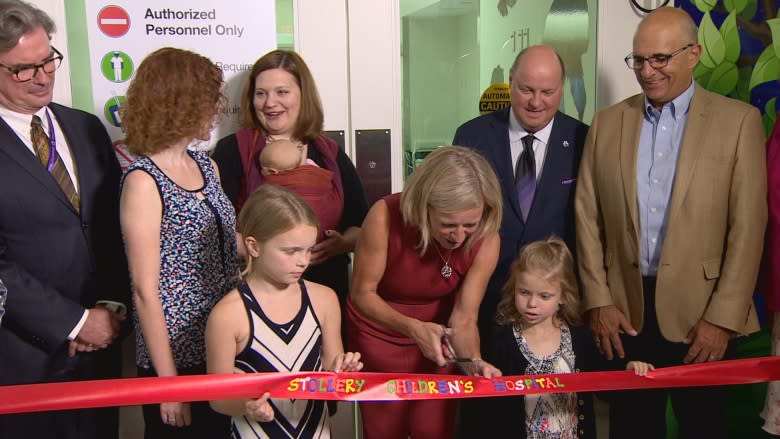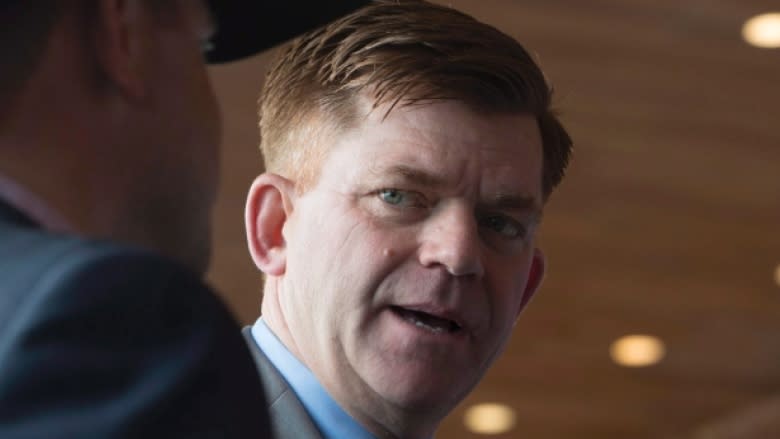Premier Rachel Notley says her government may change course if budget plans don't work
With a record deficit approaching $11 billion, Premier Rachel Notley for the first time Friday said her government may have to "re-calibrate" its plan to deal with the worst economic downturn the province has seen in 30 years.
"If we find that we're not able to stick to the careful path that we've laid out, well then, obviously, we'll re-configure, we'll re-calibrate, we'll change course," Notley said following a news conference to unveil a redeveloped pediatric operating suite at the Stollery Children's Hospital in Edmonton.
"But it's going to be careful," Notley said. "And in our view, we are not going to help the economy by firing tens of thousands of public servants — doctors, nurses, care aides, teachers' aides. We're not going to do that."
Wildfires helped swell deficit by $500M
Notley said without the Fort McMurray wildfire in May her government's budget projections would have been "in place." But fire-related costs to cover everything from abandoned vehicles to counselling support for residents forced to leave their homes, has swelled the projected deficit by an extra $500 million.
The premier wouldn't be pinned down on how, or when, any decision to "re-calibrate" might be made.
Wildrose Leader Brian Jean said Notley's talk about switching courses runs contrary to the message delivered by Finance Minister Joe Ceci earlier this week, and does little to to calm jitters in the business community.
"That leads me to believe they don't really have a plan," said Jean, who called the premier's remarks a sign of an "uncertain leadership style."
"The government should get on the same team and be rowing in the same direction to give Albertans exactly what they need, and that is better governance," he added.
Notley said her government's budget projections rely, in part, on reducing Alberta's health-care costs, which the Conference Board of Canada said are the highest per capita in the country.
"Last fiscal year, 46 per cent of every revenue dollar earned by the province was poured into health care spending," the conference board said in a report published in June.
Future demands on the system, such as an aging population, will make it increasingly difficult to meet the province's deficit-reduction targets, the report said.
"The rate at which health-care costs increase in Alberta does need to go down," Notley said. "Across the country, health care increases need to go down.
"But that's very different than taking a billion dollars out of it in one budget year, which was what was planned prior to our government's election."
The Alberta government has taken steps to curb the growth in health care costs, with spending set to grow at an average annual pace of 2.4 per cent over the next three years.
The NDP government continues to face pointed criticism from business groups and opposition parties for a range of policies, such as raising the minimum wage and the imposition of a carbon tax, set to begin in January.



